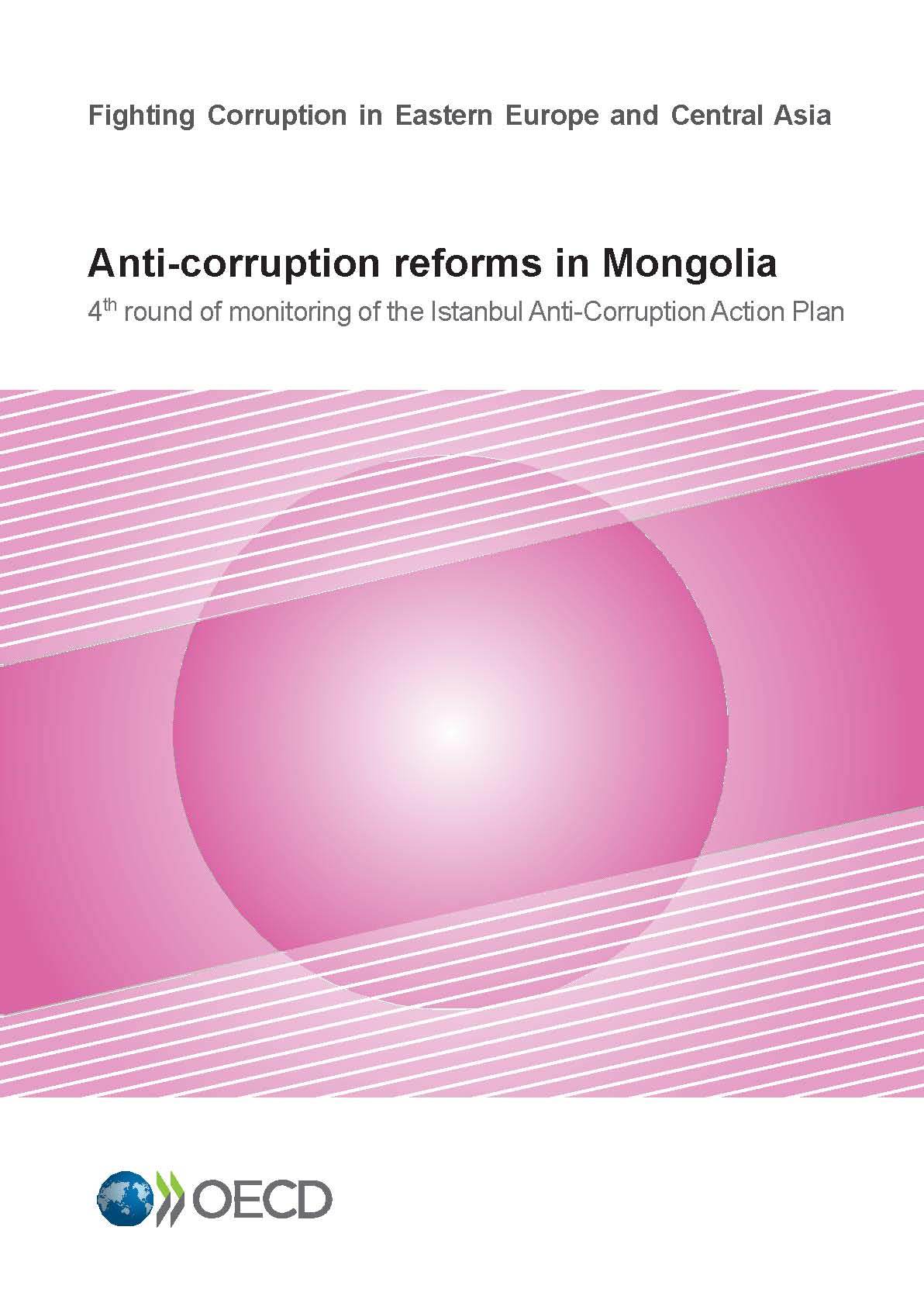Anti-Corruption Reforms in Mongolia /4th round of monitoring of the Istanbul Anti-Corruption Action Plan/
-
Anti-corruption reforms Petty corruption has been gradually declining in Mongolia, but in general corruption is widespread. Anti-corruption laws and action plans are poorly implemented. The Independent Authority Against Corruption (IAAC) has continued and somewhat stepped up its policy coordination and prevention work, however it lacked independence, resources, and necessary support from state bodies to fully exercise its mandate. Mongolia has also made enforcement efforts to address pervasive grand corruption: several high-level officials were convicted and a number of investigations are ongoing.
Anti-Corruption Policy
Mongolia has adopted the National Anti-Corruption Strategy and its implementation Action Plan with wide stakeholder consultations carried out by the IAAC. The authorities consider the adoption of the policy documents as one of the key achievements in the area of anti-corruption in Mongolia. While the participatory approach is commendable, the shortcomings related to the lack of clear timeframes and measurable indicators may hamper the implementation. The responsible agencies must put necessary efforts and show full cooperation with the IAAC to develop and implement corresponding individual action plans of public bodies. The Government is also encouraged to proactively and systematically engage with civil society addressing the concerns of the stakeholders in this regard.
Mongolia is complemented for working on an electronic system of monitoring performance of responsible authorities. It is encouraged to further define the methodology for monitoring and use measurable indicators to assess results. Targeted approach to sectoral corruption risk areas should be stepped up as well. To address the lack of regional offices, IAAC established so-called Citizen’s Oversight Councils operating both at central and regional level. Their mandate includes monitoring implementation of the action plans, transparency, integrity and financial accountability. While this may be an optimal solution given the shortage of resources, it cannot fully substitute the regional offices of IAAC which report recommends to establish. Mongolia must also ensure transparency and accountability of the work of these Councils and that the information about their activities is available online.
Surveys are widely carried out and to some extent used in the policy work in Mongolia. The report commends Mongolia for its established practice and encourages to fully use the abundance of data, analyse and incorporate available evidence in its strategic planning and monitoring processes to increase impact. A high-level coordination mechanism has not been established, but the IAAC is in charge of policy coordination and there is some established practice of working with focal points appointed in each responsible agency. Yet, a systemic, structured and consistent approach to policy coordination with wide stakeholder participation has yet to be ensured.
While awareness of corruption as well as its intolerance has increased in the society, Mongolia should do more to increase the trust and get the citizens on board of anti-corruption reforms. This will only be possible if the Government is determined to fight corruption and public is confident in those efforts. Mongolia continued its work on raising public awareness and public education on corruption but the results of the awareness raising campaigns have not been evaluated. Mongolia is recommended to conduct thematic campaigns aimed at sectors where they may have most impact in conjunction with other preventive and repressive measures, e.g. fighting against corruption in traffic police, local authorities, hospitals, or others. It is advisable to measure impact of these campaigns to plan next cycle of awareness raising accordingly.
The report welcomes the enhanced performance of the Independent Authority Against Corruption (IAAC). At the same time, it points to various challenges Mongolia’s anti-corruption agency is regrettably facing in its daily operations, including political pressure stemming from various power groups and the lack of necessary support from state agencies. The IAAC has stepped up its work in all directions of its mandate. Over the last three years its budget, staff and salaries to staff have been increasing, however the establishment of regional offices was not supported. Ongoing attacks threatening the independence of the IAAC and attempts to interfere in its activities are worrying and pose a serious obstacle to Mongolia’s anti-corruption efforts. The report calls on Mongolia to ensure that the IAAC carries out its functions free from undue influence and strictly uphold guarantees of independence, such as those related to the term of office of the Head of the IAAC. The report also recommends to ensure objective and transparent selection of the Public Council members responsible for the oversight of the IAAC, as well as accountability of their activities.

